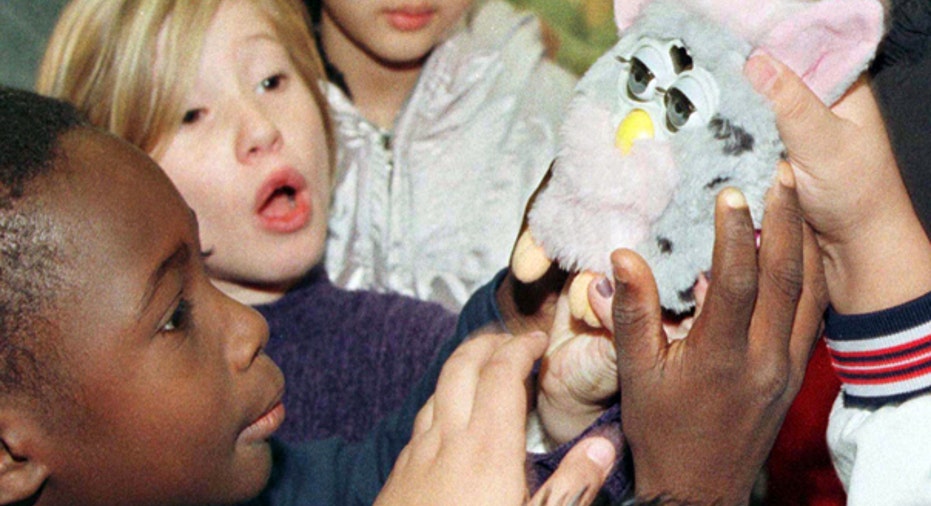Homeschooling: Right Choice for Your Child?

Growing up is tough enough without the worries of your financial future, so Money101 is here for you. E-mail us your questions and let us take off some of the pressure.
Over the last decade more parents are choosing to have their children taught at home as opposed to in a traditional school environment.
According to a study conducted by the National Home Education Research Institute (NHERI), during the spring 2010 there were a little more than 2 million K-12 homeschool students in the U.S.
A driving factor behind homeschooling becoming a more accepted way of learning is largely due to the accessibility of curriculum on the Internet, according to Rebecca Kochenderfer, senior editor of Homeschool.com and author of Homeschooling and Loving it!
[Children] can study with some of the best teachers in the country right in their home via Whiteboard learning or online classes, she says. Everybody is homeschooling now because in the information age, everyone is learning things and they have to learn it so quickly.
Homeschooling can be a way to monitor your childs learning style and development and can bring families closer together. There are different variations of homeschooling that are driving home-based education trends, say the experts.
Along with traditional homeschooling where the child is taught by a parent or tutor, the concept of un-schooling, where the childs interests direct what he or she will learn on a daily basis, and alternating public and private school education with homeschooling have expanded the definition of learning at home.
Dr. Brian Ray, president of the National Home Education Research Institute, explains that public charter schools and private curriculum suppliers are increasingly interested in joining forces with the homeschooling community, primarily for financial reasons.
Many people are saying theres got to be something better than the institutional one-size-fits-all government schooling, says Ray. Its clear from the marketing efforts and also by talking to public school superintendents that its a very profitable venture for a number of these school districts to offer government school at home and as many students that they can get into it, the better.
As a result of the vested interest, there has been some backlash from the homeschooling community, the majority of which dont want the government dictating how and what their children learn, says Laura Brodie, a professor at Washington and Lee University and author of Love in a Time of Homeschooling: A Mother and Daughters Uncommon Year.
Although homeschooling is thought to be predominantly for young children, Kochenderfer points out students being homeschooled through college is a relatively new trend.
Many kids now are finding that college is taking so long and being so expensive and theyre finding alternative ways to get their degrees for far less money and far less time, she says. These umbrella colleges that are emerging are allowing students to take classes from all of the different campuses and to combine it all into a customized degree.
What Parents Should Consider
Homeschooling is not for everyone, warn the experts, and there are some important issues that should factor into a parent's decision.
While the cost of supplies and teaching materials are relatively small, (Ray estimates an average of $400-600 per year, per child), having one or both parents take on the teaching role may require a shift in the familys financial dynamic.
We live in a two-income world and if youre homeschooling, someone needs to stay home at least part time, so you have that loss of income, says Kochenderfer. For the most part, homeschooling is less expensive than a private school education, but more expensive than a public school.
The experts strongly suggest getting involved with your local homeschooling community for support.
You want to be a part of a homeschooling network so you can do field trips with other families and gather with other families for art classes and theatre productions and all of the group activities, says Brodie. Homeschooling is not supposed to just be a child alone at home--theyre supposed to be active in the community and with other homeschoolers.
Kochenderfer points out that colleges are increasingly recruiting homeschoolers, who find that the students have a maturity and academic vitality that many regular school kids have yet to develop.
Because the parent plays the role of the educator, it is important to recognize the separation of the two roles to ensure that your child stays on track.
There [are cases of] good homeschooling and bad homeschooling, just as there are good public and private schools and bad public and private schools, says Ray. The problems in homeschooling come when parents arent keeping up with the childs progress, both social and academic.
Although homeschooling is a big commitment in terms of time spent, financial implications, and a change in the family routine, people who are confident that they have the ability to devote the time and energy to their childs development may reap the benefits.
I think for the parents perspective, research shows us its a better ride, but its not an easy ride, says Ray. You have to be intentional, thoughtful, humble, and talk to other people in your support group to get new ideasits work, but its a different kind of work."



















